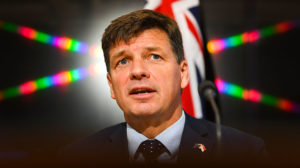
National action plans to reduce carbon emissions submitted from 151 countries, covering 85 per cent of global emissions, “serve as a baseline and not a ceiling for action” the UN’s Assistant Secretary on Climate Change, Janos Pasztor, said Tuesday in the lead up to the Paris climate conference in December.
Initial analyses suggested these commitments would only restrict average global temperature rise to between 3.0 to 3.6 degrees Celsius, well short of the less than 2 degrees required to avoid dangerous climate change.
“Things are moving in the right direction but clearly they’re not enough,” Pasztor said noting that under business-as-usual scenarios that temperature rises would be above 4.5 degrees by the end of the century.
Pasztor said removing fossil fuel subsidies and implementing carbon pollution taxes, as called for by International Monetary Fund managing director Christine Lagarde, were “certainly one of the most important ways in which countries can address this issue”. Wealthy countries are spending up to $200bn a year subsidising fossil fuels, according to a report released last month by the Organisation for Economic Cooperation and Development (OECD).
A strong political signal to the private sector and international markets that the world is moving to a zero carbon future should be the main outcome of the Paris conference on climate change, Pasztor said.
“What we hope is that this (Paris agreement) will give a strong and clear signal to the world about the path to a low and zero carbon future, we’re were going to. That is the most important outcome, in terms of the world.
“If we have that clear long-term signal then the markets will do what they have to do and the private sector will do what they have to do.
“We have seen a tremendous growth in private sector in renewable energy, insurance, you name it, but they need a stronger signal and we hope that’s what’s going to happen the day after Paris.”
On the key issue of financial support to developing nations, Pasztor said $62 billion, of the $100 billion per year fund promised by developed by 2020 had already been provided to assist developing countries deal with climate change, based on a recent report by the OECD. He said countries and multilateral development banks, such as the World Bank, had also recently pledged additional resources of up to $50 billion.
However Pasztor said: “There needs to be a mobilisation trajectory demonstrated in Paris. Developed countries must be able to demonstrate how they’re going to reach that 100 billion.”







